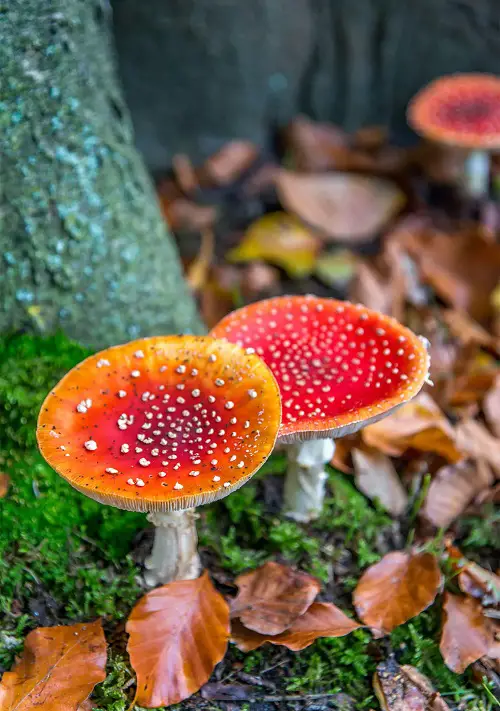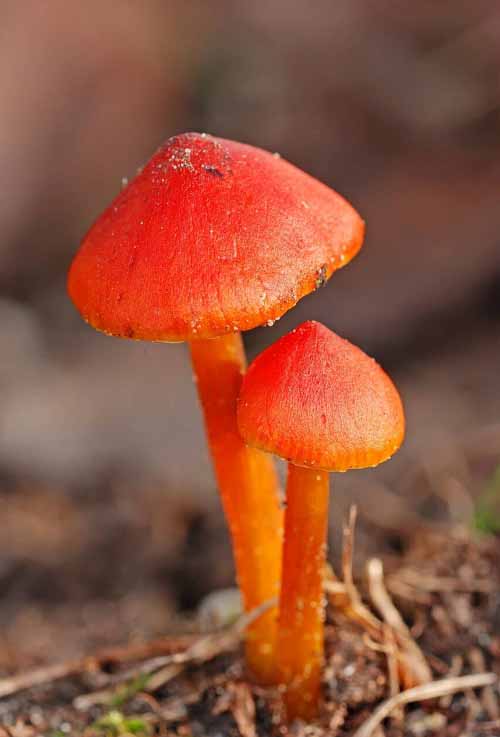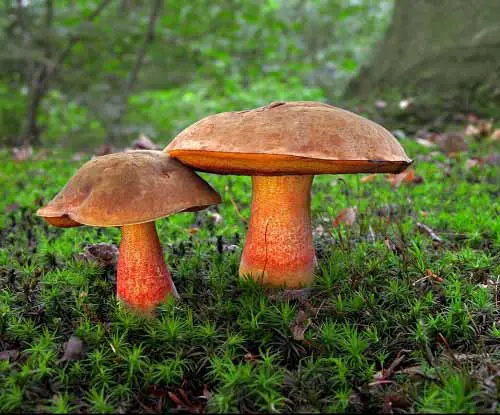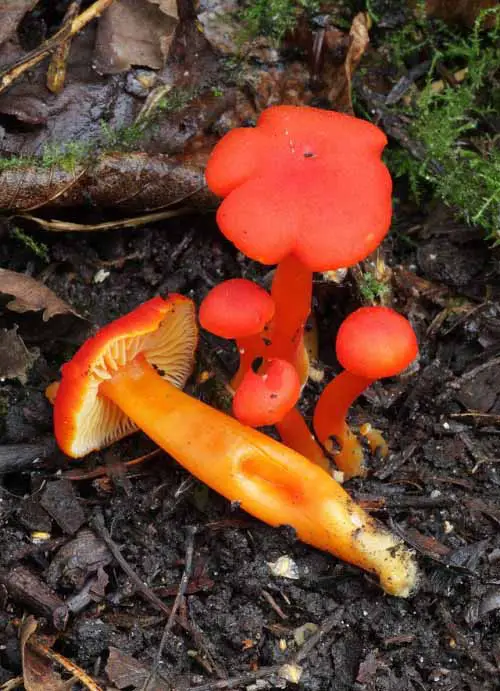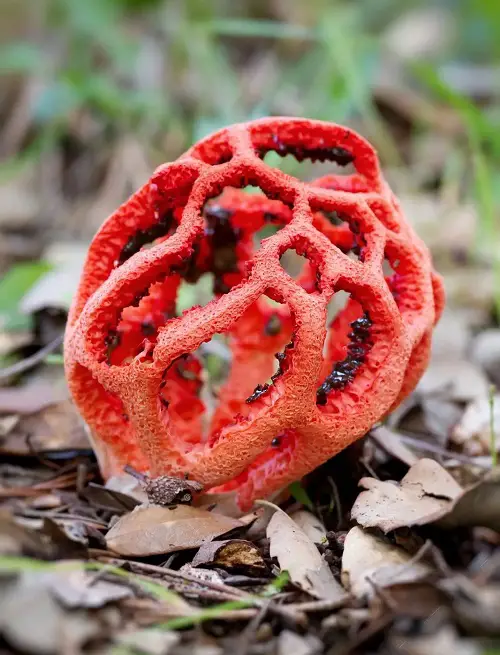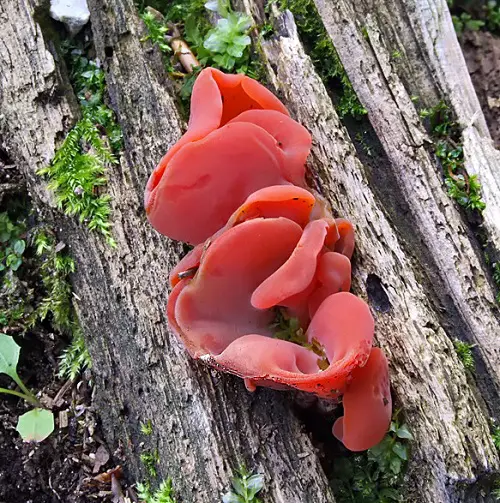Mushrooms are diverse and fascinating organisms, and among them, Red Mushrooms hold a unique role in ecosystems.
Red mushrooms are unique for their distinctive qualities and their significant contributions to ecosystems. Below, we’ve listed some of these species for you, along with their identification and uses, so that you can explore further into their importance.
Types of Red Mushrooms Identification and Uses
Some of the mushrooms on the list may not be exactly ‘red’ and have an orange tint.
1. The Classic Red Mushroom
Botanical Name: Amanita Muscaria
Native to the Northern Hemisphere, the classic Red Mushroom is easily recognizable by its red cap adorned with white spots. These large mushrooms are toxic when ingested raw. However, despite their toxicity, they have been utilized in shamanic rituals for generations, involving a meticulous preparation process, including detoxification.
2. The Sickener
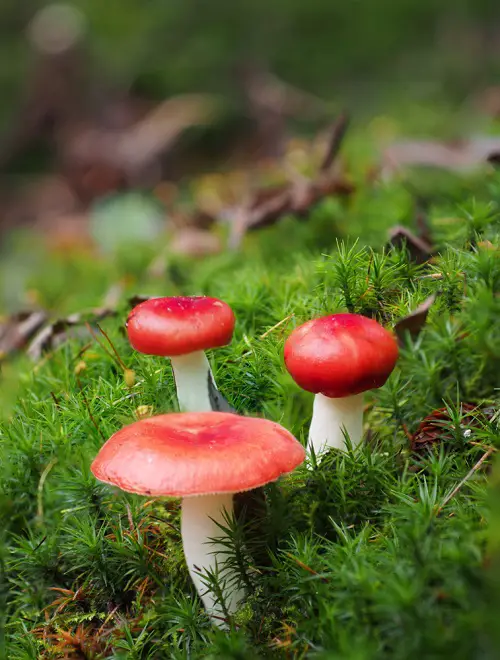
Botanical Name: Russula Emetica
Primarily found in mixed forests, Russula emetica stands out with its bright red cap and sturdy white stem. This mushroom is toxic and should not be consumed, as it can cause severe gastrointestinal distress and vomiting.
3. Vermilion Waxcap
Botanical Name: Hygrocybe Miniata
Flourishing in grasslands and lawns, the Vermilion Waxcap features a conical-shaped cap which is bright red to orange in color. Preferring moist conditions, it isn’t suitable for culinary use due to limited edibility and a somewhat bitter taste.
4. Red-footed Bolete
Botanical Name: Boletus Erythropus
Found under deciduous trees across Europe and North America, Boletus erythropus is known for its reddish stem base and chestnut-brown cap. Generally considered edible when properly cooked, caution is advised, and positive identification by experienced foragers is crucial.
6. Wrinkled Peach
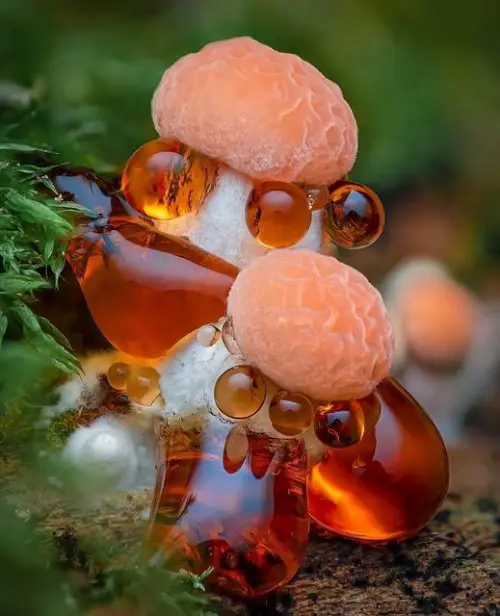
Botanical Name: Rhodotus Palmatus
Identified by its pink to salmon-colored cap with distinctive wrinkles resembling a peach-like texture, this unique mushroom has gills attached to the stem rather than running down it. Preferring decaying hardwoods, especially oak trees, it holds limited edibility, with some foragers cautiously using it in mushroom dishes.
7. Bleeding Fairy Helmet
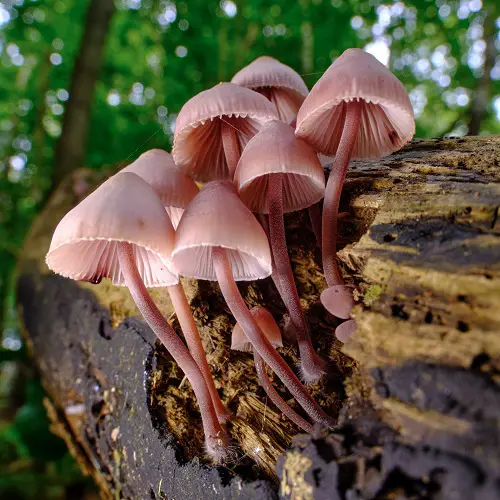
Botanical Name: Mycena Haematopus
Commonly found on decaying wood, the Bleeding Fairy Helmet is characterized by its deep red or burgundy cap and the red juice it secretes when its stem is broken. These mushrooms prefer habitats like rotting logs and mossy forest floors. While not edible, they contribute to nutrient cycling by decomposing dead wood.
8. Bleeding Tooth Fungus
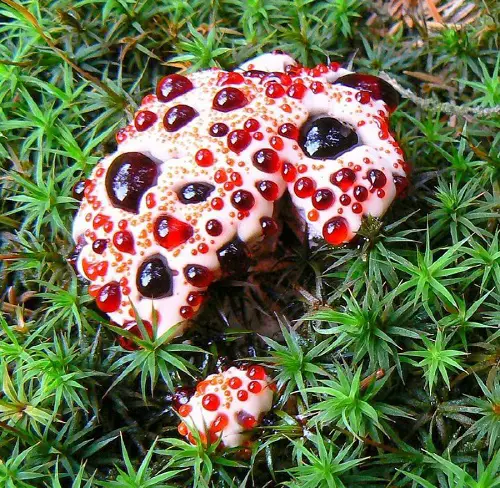
Botanical Name: Hydnellum Peckii
Featuring a distinctive reddish cap with a tooth-like surface, the Bleeding Tooth Fungus is identified by its irregular, brown to reddish-brown cap with a sponge-like texture. Its underside exudes a red liquid when touched, creating the “bleeding” effect. While not edible due to its bitter taste, its red liquid has been utilized historically as a natural dye for fabrics.
9. Rosy Russula
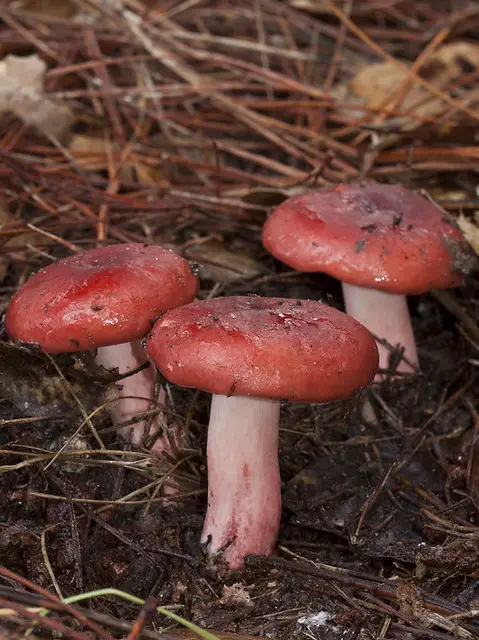
Botanical Name: Russula rosea
The Rosy Russula stands out with its 5-12 cm rosy pink to reddish cap and slender white stem. Native to North America, Europe, and Asia, this Red Mushroom is considered edible by some, although it’s often regarded as mediocre in flavor and texture. Careful identification and thorough cooking are advised due to potential toxicity in some Russula species.
10. Scarlet Elf Cup
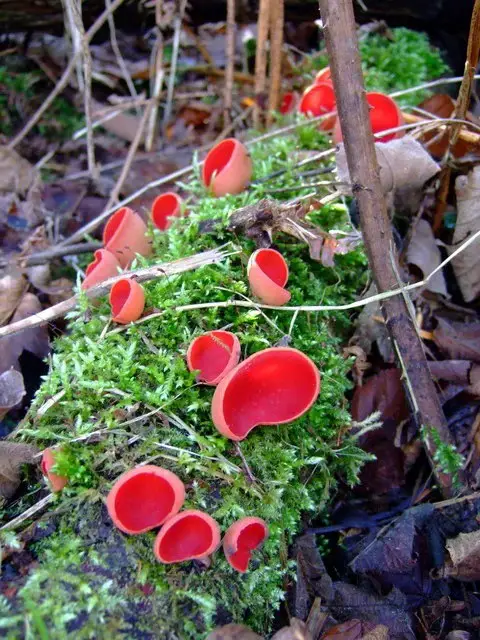
Botanical Name: Sarcoscypha coccinea
Flourishing in damp woodland environments, this Red Mushroom forms a cup or goblet shape with scarlet to orange-red coloration. While not edible, the Scarlet Elf Cup contributes to nutrient cycling within forest ecosystems and holds ornamental and educational value.
Here are Some Cool Looking Mushrooms You Must Read
11. Red Chanterelle
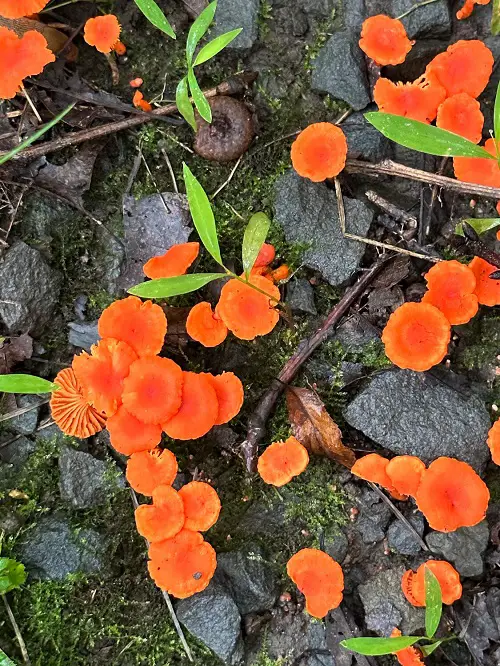
Botanical Name: Cantharellus cinnabarinus
Native to North America, Europe and Asia, the Red Chanterelle boasts a bright to dark red-orange cap with a wavy edge. Typically found in mixed woodlands, especially near oak trees, it’s valued both ecologically and culinarily.
12. Crimson Waxcap
Botanical Name: Hygrocybe punicea
Identified by its crimson to scarlet cap which ranges from convex to flattened with age, the Crimson Waxcap is commonly found in grassy areas and woodland clearings. With no culinary value, it serves as an indicator species for habitat preservation.
13. Red Cage Fungus
Botanical Name: Clathrus ruber
Found in tropical and subtropical regions, this Red Mushroom is identified by its red to orange-pink lattice-like structure resembling a hollow cage. While not edible due to its foul odor and unpalatable appearance, it contributes to nutrient cycling in forest ecosystems and attracts flies, aiding in spore dispersal and reproduction.
14. Red Reishi
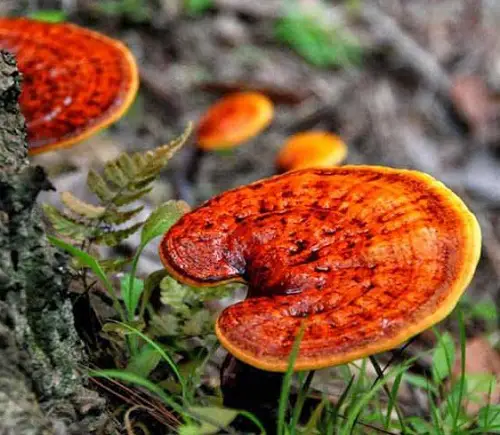
Botanical Name: Ganoderma lucidum
Thriving on hardwood trees, the Red Reishi is another Red Mushroom species found across Asia. Often growing notably on trees or stumps, it has various medicinal properties and is used for boosting immunity and has anti-inflammatory benefits too.
15. Crimson Jelly Fungus
Botanical Name: Tremiscus helvelloides
The Crimson Jelly Fungus is known for its distinct features and ecological importance. Identified by its gelatinous texture and irregular lobed shapes, it often grows on decaying wood after the rainfall.
16. Rosy Veincap
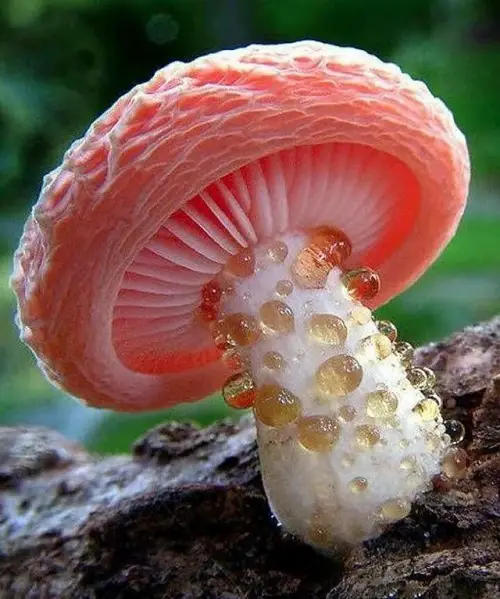
Botanical Name: Rhodotus palmatus
Found in North America, the Rosy Veincap, a variant of Rhodotus palmatus, has pink to rosy-red cap adorned with vein-like patterns and short, stout stem make it easily identifiable. While edible, it’s not widely used in cooking due to its mild flavor. However, it holds ornamental and educational value, often collected for its unique appearance.


